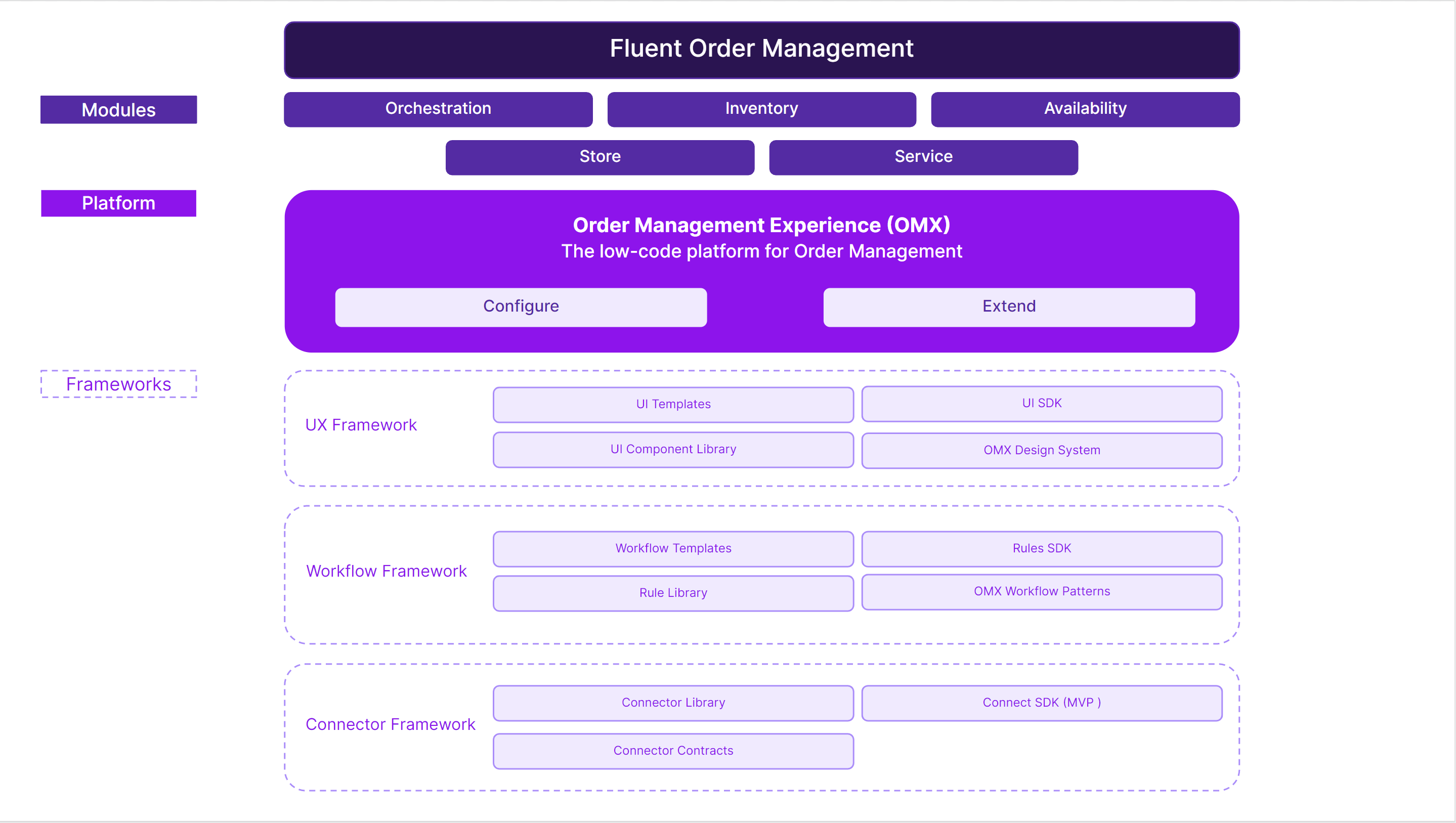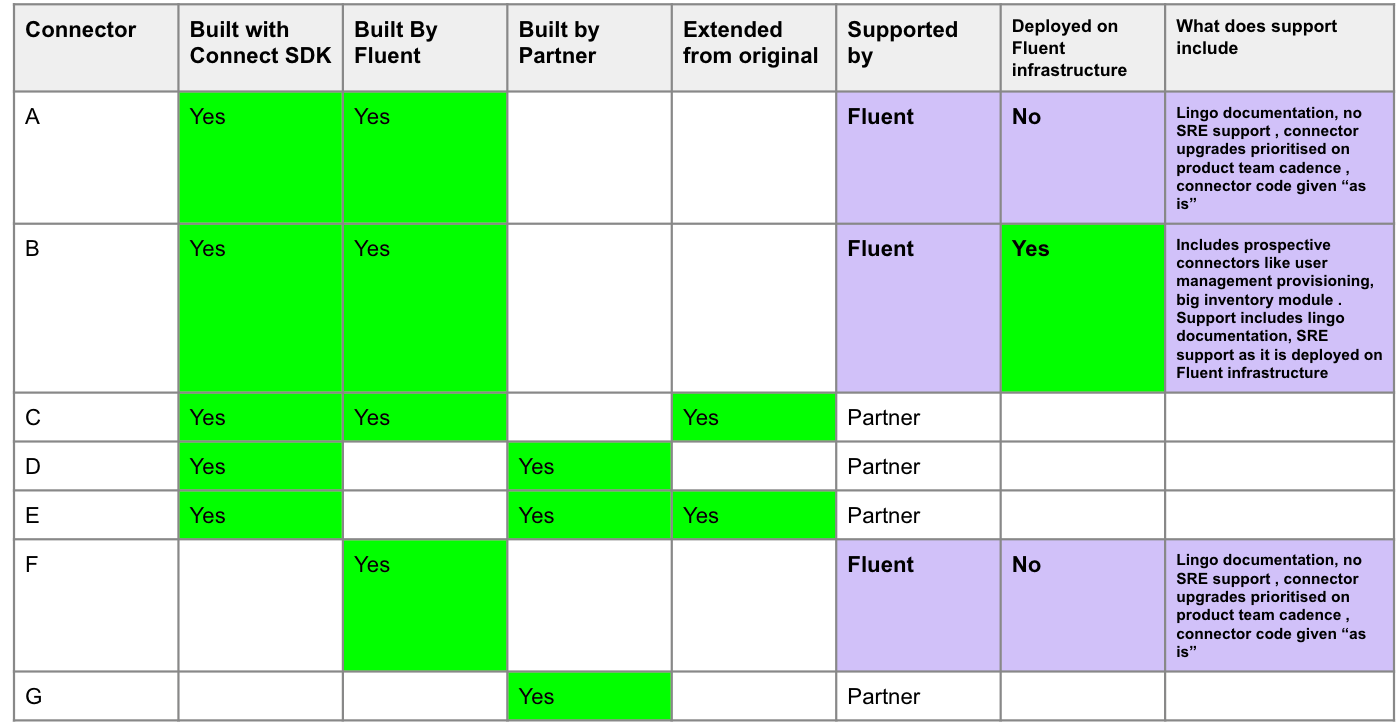Connect SDK Overview
Essential knowledge
Author:
Fluent Commerce
Changed on:
1 July 2024
Overview
Connect SDK is the launchpad to connect any external system with Fluent Commerce in a predictable way. It reduces implementation timelines and costs so customers can see faster ROI. Technically, Connect SDK is a Java Maven Archetype and Java Library Utils that form a toolkit for building Spring Boot micro-service applications that communicate with the Fluent Order Management System and any external system.Key points
- Connect SDK helps partners and customers quickly start building ad hoc connectors with consistency, better security, and short implementation time.
- A deployed Connect SDK-based integration simplifies middleware setup and support
- It offers incredible flexibility in building synchronous and asynchronous endpoints with a common credential, logging, and configuration interface
- In regards to hosting responsibility, any connector built using Connect SDK is cloud-agnostic, and the integration layer is still owned and maintained by the solution integrator, becoming part of the project codebase.

Connect SDK is the launchpad to connect any external system with Fluent Commerce in a predictable way. It reduces implementation timelines and costs so customers can see faster ROI.
What is the value to me as a customer?
- Decrease implementation time and costs (faster ROI)
- Improves security risks and reduces bugs with a best practices approach
- Lower cost to support
- Allows more time for additions to the overall project that the implementation partner couldn’t include before
What is the value to me as an integration partner?
- Decrease implementation time (have more time to add to the project to provide business value to the customer)
- Lower cost to support
- Increase quality and security
- Reduces bugs
- Build reusable assets, reducing TCO
- Build industry-specific accelerators showcasing end-to-end scenarios,
e.g., accelerator involving an e-commerce layer, payment solution, shipping platform, and Fluent platform - Better support from Fluent Commerce with new features added to Connect SDK versions.
Middleware strategy and architecture
If the customer needs to create a new application or service that requires integration with multiple devices and services, then Connect SDK is beneficial to provide standardized APIs and pre-built functionality to simplify the development process connecting to the Fluent platform. Each connector built on Connect SDK can be deployed and scaled independently, giving flexibility for a multi-cloud deployment strategy to reduce risk at a lower cost than replicating the existing middleware across clouds.It would also depend on the existing middleware. One can expose the connectors built on Connect SDK using endpoints and build wrappers specific to middleware. The Mule and WSO2 adapters will wrap that interface so that any handler built on the Connect SDK will be portable across different ESB solutions.With that, you can import our functionality (auth, API calls, common use cases like paginating a connection, loading settings, etc.) and have them appear as configurable nodes in the Integration Studio low-code experience.Support
Any connector built using Connect SDK is cloud-agnostic, and the integration layer is still owned and maintained by the solution integrator and becomes part of the project codebase.Here is the support matrix for Connect SDK:
Scenarios
The Connect SDK offers incredible flexibility in building synchronous and asynchronous endpoints with a common credential, logging, and configuration interface. Customers and partners can easily customise the logic within the endpoint to meet specific requirements. If real-time responses are needed for front-end applications, synchronous calls can be made directly to Fluent by bypassing the queue logic. For example, the product availability integration uses synchronous calls to access the Fluent fulfilment option mutation directly. This same approach can be applied to virtual position calls or time-bound order searches. We recommend an asynchronous approach for all other integrations for scalability and flexibility.
